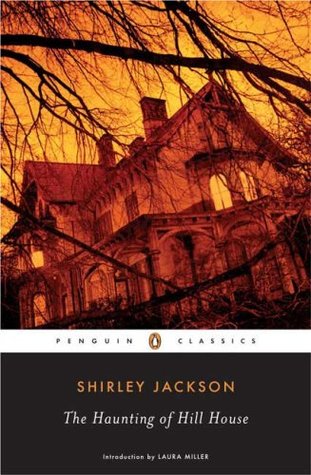Creeping me out is not that easy. I can watch ghost movies or read scary books right before bedtime and then sleep like a baby. Turns out the supposedly scary books I've read have been too obvious, or perhaps a little too weird, for me to take seriously.
Stephen King is all well and good, but I've never found any of his creations truly frightening. Probably because I just can't see a sentient car trying to kill me.
Visiting a house which is known to be haunted and having the heck haunted out of you, however, seems possible to me.
Shirley Jackson, as the undisputed queen of 20th century Gothic tales, was a master at creating a chilling atmosphere. I love those moments in books where I stop reading and gasp aloud. Usually, they're brought on by the pieces of a mystery falling into place or a sudden revelation. I can't ever remember having that reaction because something was so spooky. Until now. Twice while reading The Haunting of Hill House, I jumped back, wide eyed because the story had lulled me and then shaken me violently.
But the scary bits are just a tiny part of what makes this book so wonderful. The characters are real and intricate, especially the two women. Eleanor and Theodora take Dr. Montague up on his invitation to investigate the titular haunting and find themselves instant friends.
The vast majority of the book comes to us from the perspective of Eleanor, a narrator of dubious reliability. But is it Eleanor herself who is unreliable or is the house affecting her in strange ways? She is a highly imaginative woman whose stifling life has made her hungry for the enchantments of stone lions and picnics by a brook. Her desperation to belong draws her toward any available port and Theodora's easy camaraderie gives her hope that she will find a home with her somehow.
As Laura Miller points out in this edition's introduction, Jackson frequently presents the reader with two paired women as representations of her own dual personality. She could write about the bleakest, most distressing topics, but at home she was the happy mother and hostess. Drawing on this chaotic version of domestic bliss, she wrote articles about her real life for women's magazines. How fortunate she was to find a willing audience for both the darkness and the light inside her.

